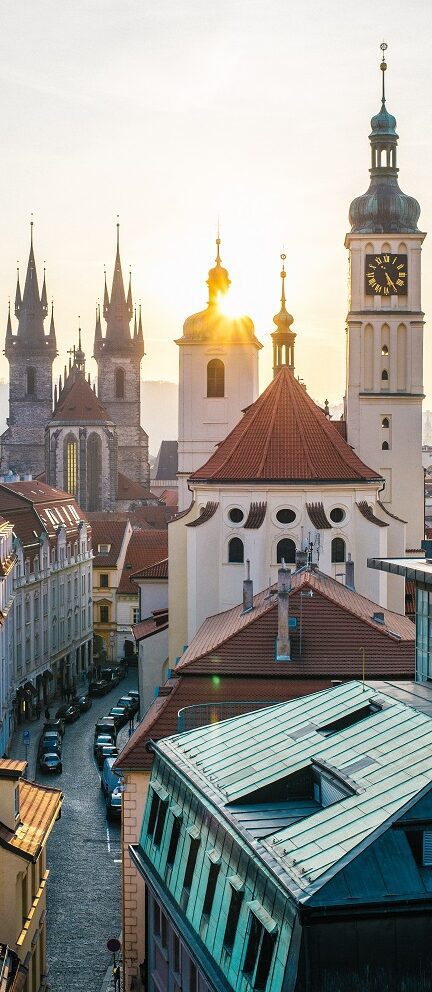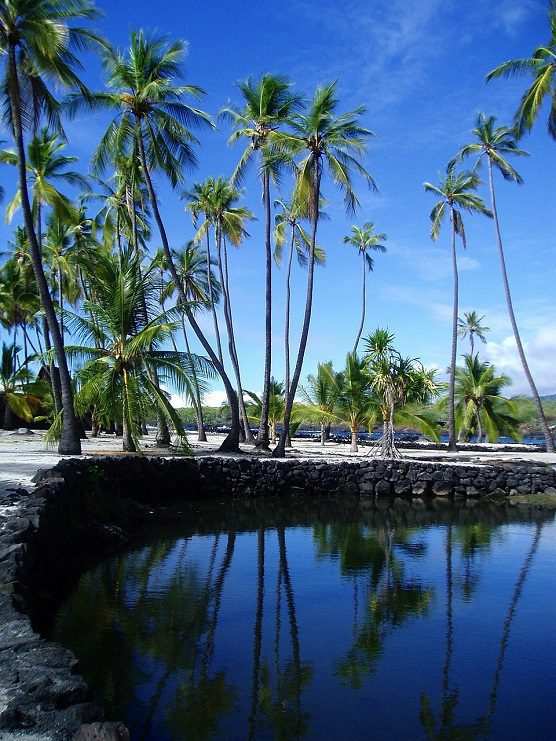The discreet charm of Le Mas du Langoustier extends to its restaurants, too. La Pinede, a shady terrace cased by speculative magpies, is perfect for relaxed family meals; a long table, with grandparents in a lobster bib at one end and babies beating their spoons at the other, is an ‘ages of man tableau vivant. L’Olivier, with its Michelin star and pastel mural of Riviera idylls, is a more formal affair: chartered helicopters from Nice and Monaco chunter through blue twilight to drop off devotees of Joël Guillet and Julien Le Goffs modern Mediterranean food from the mainland for supper. The domed dishes and lobster-pink napery are a quaint throwback to 1970s fine dining, but if there are occasional Fawlty Towers flourishes in service (“I present to you…The butter!”), the flawless tasting menu more than makes up for it. Seven courses, from a crisp, lacquered croustillant de langoustine with ginger and caramel to sea bass flecked with pistachio foam, truffled beef and a show-stopping pudding with strawberry caviar (this is what I call party food for fairies), are expertly judged and paced. The wine list has its flashy, Alan Whicker moments , but there’s also a strong showing of the local wines of Provence. Our shell-pink rose from the nearby Domaine de la Presqif ile de Giens has surprising heft; if one of the Alice- banded girls around us were to hoick up her skirt and show extravagant tattoos, we could not be more delighted.
Waking up on Porquerolles, there are two clear options: to tootle or not to tootle. A sizeable proportion of residents at Le Mas never stir from its lovely precincts, but this would be a shame, for Porquerolles packs a lot of topography into a small area. Strike uphill from the village to the 16th-century Fort Sainte Agathe for a lordly vista of the domesticated interior – orchards of rare orange, lemon and mandarin varieties and scaled down vineyards belonging to the Conservatoire Botanique National (the charming owners of Domaine Perzinsky welcome walkers looking to buy just one bottle for a picnic). Or explore the spectacular clefts and creeks of the island’s rocky fringe (Les Calanques) by bike or by sea kayak: even at the height of the summer season, you can find a two- person beach with unbroken Mediterranean views where you can imagine yourself to be a castaway (but still manage to be home in time for tea).
A short ride on a ferry full of super- bronzed men with goatees (the third lie d’Or on the circuit, lie du Levant, is a long- established nudist colony) takes you to the smaller and more rugged island of Port-Cros. Disembarking on the sandy quayside, with its scatter of beach bars and row of royal palms, you could mistake your location for the Caribbean.
Walk just five minutes along a coastal path and you’ll reach the green garden gate of Le Manoir de Port-Cros, a colonial-style mansion with a unique literary heritage. Since the 1920s when Jean Paulhan, celebrated editor of La Nouve/le Revue Franqaise, struck up a friendship with Marcel and Marceline Henry, who owned Le Manoir hotel (and, for that matter, the island), Port-Cros has attracted respected writers seeking refuge from the stresses of the continent. Andre Gide, Andre Malraux and Paul Valery were regular visitors to Le Manoir and would find little changed today. Public parts are pretty as a picture; antique furnishing and huge vases of garden flowers are set to advantage against whitewashed walls, while the garden, with its dappled shade and great splashes of oleander, is like a scene painted by Manet. Bedrooms are simple to the point of asceticism: there is no air-conditioning and the hot water is limited, but mine had a private terracotta terrace – the perfect spot to strech out with a book.
Le Manoir De Port-CrosGuests, almost exclusively French, are apt to congratulate one another on the lack of TV and wi-fi (there is a public screen switched on. we are assured, for coverage of general elections). The real luxury here, by oft-repeated consensus, is peace and quiet. The atmosphere of the library extends to the gated pool area where reading is practically a competitive sport (Derrida trumps all). There’s a vaguely collegiate feel to mealtimes as well; diners are summoned by bells for food that’s more correct than inspired, but conversation flourishes long into the night. Children appear in the tables and in the games room (parents ensure draughts doesn’t become too boisterous), but Le Manoir is essentially a grown-up retreat.







